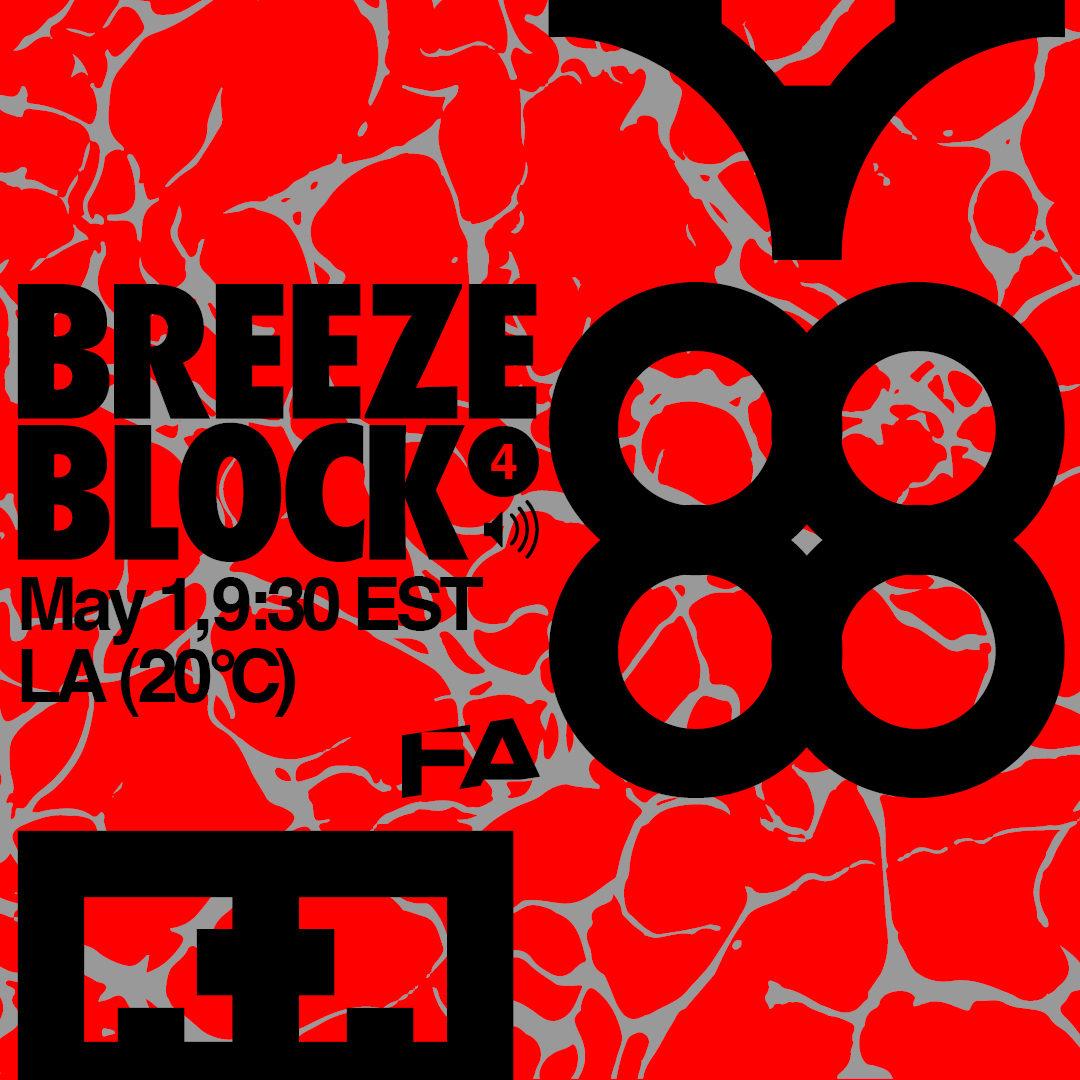Episode Transcript
Speaker 0 00:00:02 Welcome to field architecture, breeze blocks, where our editors share their thoughts on works in progress, urgent matters, and current happenings in architecture and spatial politics. I'm Kristen current editor at field architecture on the territory of the Massachusetts. Then I'm here today with Koa, just city. <inaudible> the co-founder of authentic creations publishing apothecary.
Speaker 1 00:00:29 Hey Chris, I'm excited. We're also saying nervous to be in this space with you. My first name is <inaudible> and my pronouns are the one. And this one, I am recording from Shoshone territory. I am a seed Stewart. I do publishing and I would say I literally create space for people, marginalized people, um, advocate for as push to free up space for us, as well as notice and take up available space. Um, I'm also the editor of fierce together, a truth magazine and in collaboration with what we're doing today, just wanted to invite listeners to, um, be a part of our second edition. The theme is reparations for currently accepting contributions of art and plays and articles and poetry and all the fascinating creations you can put in print till automobile Equinox, which is September 21st. Yeah, I guess I loved the take a breath as we arrive in this moment together with an intention to reconnect with cities and land and self and purpose each other.
Speaker 0 00:01:57 So on that note, Koa just city mentioned the theme of reparations and that's really what we're going to be talking about and unpacking today, uh, because in, and of course this is a very, very expansive topic and, you know, this is just kind of like a short conversation of it, but I think it's really important to start really brainstorming about what land reparations means and how can designers really contribute to providing land reparations. This topic itself has been kind of foreign to a lot of design spaces, which is a bit ironic, especially in the landscape design field, for example, because it deals with land. And we can't talk about landscape architecture or designing space without talking about land and how, at least in what is now called the U S was on stolen land. And so how do we repair and go forward as not only acknowledge right to repair, but also move forward and envision a future where, you know, we can share land collectively and think about how this all kind of contributes to our collective wellbeing, including plants, including animals and everything.
Speaker 1 00:03:18 Yeah. I'd love that. I'm thinking too, you're saying, we're saying reparations, and then you're saying stolen lands. And I also want to take a moment to understand the complexity of land access right now, and you're saying reparations. So that is, um, kind of a repair, a remedy, a reckoning for the descendants of the African slave trade, the transatlantic slave trade, um, the African diaspora, which is ancestry identities from Africa, the Latinex, the indigenous of turtle island and the Caribbean. Um, and so those people are asking for reparations, which is to return the wealth spilled by chattel slavery. Um, which I think initially, you know, you hear about, um, 40 acres and a mule. Um, I think it was, uh, also kind of shaped for awhile as a cash payments. Um, kind of similar to what happened with COVID. You get like some money when you are disproportionate in ways.
Speaker 1 00:04:24 Um, and so then we're going to talk about more how like land really rebalances equity. And so the ask of reparations also is to end systemic racism because, you know, after slavery, it didn't just like go back to anything. Um, so that's prisons prison, labor tip based wages, policing cultural repression of all kinds, extreme resource extractions, limiting laws, and then just how this affects people of heritage, people of color, of all nationalities. And so you're talking about the indigenous people of turtle island. They're asking for remade, striation the return of their original lands and their environmental stewardship of their lands because they have a totally different way of interacting then colonialism. Um, they have like broken treaties and then we're saying how all of this is happening right now because people have heritage, Africans, Chinese descendants, Mexican Americans, um, there's sundown laws, denial of ownership laws for just the land that we need.
Speaker 1 00:05:34 Um, especially if you're thinking ancestral just to survive or indigenous practices basic needs, where you get your food, where you get your fiber to make all the things that you enjoy. I just want to say that land-based discrimination is, um, an old practice. If you just even think about slavery, like we were taken from our, um, and just this separation from land as a way of control. Um, and then to think in like right now, gentrification denial of home loans, limitations, even when you're in a rental to actually plant in the earth or interact with your landscape, there is like someone else still has like authority in that space.
Speaker 0 00:06:21 I mean, I think especially like environmental stewardship and the return of land and land access, like these are all issues that designers, you know, I would say coming from a landscape architecture background, uh, these are all landscape architecture concerns, things like access to affordable housing, or like dealing with climate change, which also coincides with my indexes. Right. Um, and the disappearance of that land due to climate change, I appreciate your mentioning this because, you know, I think that their representation in the field of landscape architecture also kind of, uh, impacts whether or not these issues are even addressed or how they are addressed in a critical way. You know, I was just at a, at a conference or an unconference gathering and, uh, and it was great. Uh, I did this panel because as a, as a participant, you can, you know, you can make your own panel at an unconference, which is great.
Speaker 0 00:07:18 Uh, and it was just a conversation around land operations and what landscape architects, uh, can kind of contribute. It was really hard. There was a lot of silence because there were no indigenous folks on there. There were barely any black participants. Uh, and really, it was a lot of people really interested in listening, which is very hopeful, but it was just like so indicative. And, and also somebody on the, who joined the conversation, even pointed that out. It was just so clear that they're missing voices in the room, you know, and at the same time, it's not like indigenous folks or black folks are responsible for educating anyone in those spaces. Either
Speaker 2 00:08:04 Thing <inaudible> ring with, let me tee that up. <inaudible> then <inaudible>,
Speaker 0 00:08:33 I do want to move towards thinking about like, you know, what are the practices and what are the things that are necessary really for land reparations to truly become reality, essentially. Um, because I know you mentioned in North Carolina, right, there was a vote unanimous vote actually for reparations. Could you share more about that?
Speaker 1 00:08:55 Do I know about that in Asheville, within very recently in this last moon cycle, it was agreed on, I'm not sure how long it was actually in deliberation. You know, I don't know if it's spraying out from the recent or Floyd, um, pushback for so many things, but it got voted on recently and, um, reading it, it's a little bit vague, kind of what you're saying, affordable housing, better conditions, um, economic wealth, you know, there's just really nice words. Um, but no action plan. And that's kind of how I feel right now in the wake of, uh, Brianna Taylor and so many others is that there's all these solidarity statements that lack like action and follow through and any kind of accountability, kind of just like, you're sad, I'm sad and we need more like remedy and what you can do because you're so outraged apparently.
Speaker 1 00:09:54 Um, so I hope that, oh, it also said there's like, kind of like a, a committee that will form that will also engage with the communities. And so that's really important to have, um, I mean, you know, how effective are these going to be, but it does have a community component, which is usually, um, better for sure. But then also does that affordable housing have a place to like garden and really reconnect, or are you on like, you know, a multi-floor building with little windows and, you know, even not space to grow in your home in any way, just because of your conditions. So that's what I know about it so far. Um, but it is moving forward. It was voted on. And as far as press, I haven't seen any like dates of next say, but I assume they're like putting that committee together right now, who will then give us the next thing.
Speaker 1 00:10:52 But yeah, that is great. And I guess that hasn't actually happened before with a municipality. Um, so it does give a model of things that can happen and ways to move forward. And I think that's important that people notice the models that are out there, cause people are doing the work and getting that information out and how to implement change and really have those hard conversations and really have those moments. I feel like where you're engaging with a community that's so engaged with the communities that you're attempting to bring in because I'm thinking too, you're like I had a panel, but all I can do is have a panel, but then it's like, who was invited to this unconference? Like that was, you know, the root of what's going on. Um, yeah, so that's thinking,
Speaker 0 00:11:36 Yeah, like who's at the table, right. It's crucial to have voices of black and indigenous folks and communities and voices of, you know, BiPAP designers as well, you know, because they're out there, you know, um, it's not like they don't exist, right?
Speaker 1 00:11:58 Like we're right here together. <inaudible>,
Speaker 0 00:12:06 Uh, I'm working with, you know, design is protests, right? And so that's a whole group BiPAP led group that is looking to ensure that we have an anti-racist future and that includes, uh, addressing land access and land operations. So there's really no reason for, for designers not to not to get involved, especially when like urban planning and landscape and architecture buildings, you know, are built on.
Speaker 1 00:12:36 I think I'm thinking too is like a non-home owner designers have a lot of clout to homeowners. Like if you, uh, suggest like putting things in land trust and making community spaces, like they're looking to designers, like what's, what's in right now, you know, that's your job to know what to suggest to people. And I want to, you're also saying what, what do people need? And I'm like to take risks, to get vulnerable, to be uncomfortable, to also learn, to have fun in that space. And I think that's what gets missing, but joy and the fun that is also available there and that like comes out of that space. Um, and just have those few moments of uncomfortable.
Speaker 0 00:13:20 Sure. Yeah. I mean, I think that is something that I am noticing also. Um, and I'm hopeful for those conversations is that, you know, there are, there's this kind of fear to bring up ideas for fear of being wrong, let's say. And I think that it's about like what you were saying, you know, being vulnerable and open to these, uh, to these ideas and sharing your thoughts. So, you know, people are understanding, got a trust, right,
Speaker 1 00:13:54 Right. And if they're not, you have a hard moment, you know, move on. We've had 500 years of hard moments. So I think what's critical too, is realizing how can people obtain equity, equality themselves, a livelihood without food sovereignty and cultural food security and these connections to our legacies of ancestral seeds stewarding and the tenacity of our people breeding seeds into their hair on those transatlantic slave trade into their clothing. I know the Chinese immigrants stasis. I'm thinking to the spirituality, the sovereignty of practicing your ways, land-based ceremonies, prayer, and style of being that's interconnected with the land. We are the land. And there's a lot about climate change is being able to regulate the climate with a plot of land and what we choose to do with it.
Speaker 0 00:15:00 Thank you so much. <inaudible> this was a great chat about just like, you know, what's happening out there for land reparations and what designers can do. If you are interested in learning more about co-op city and this one's work, you can check out the artistic apothecary.wordpress.com. Please don't forget to support. We'll provide a couple of links and thanks for, thanks for joining us.
Speaker 2 00:15:29 <inaudible> the Jews to a <inaudible>.


